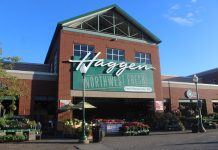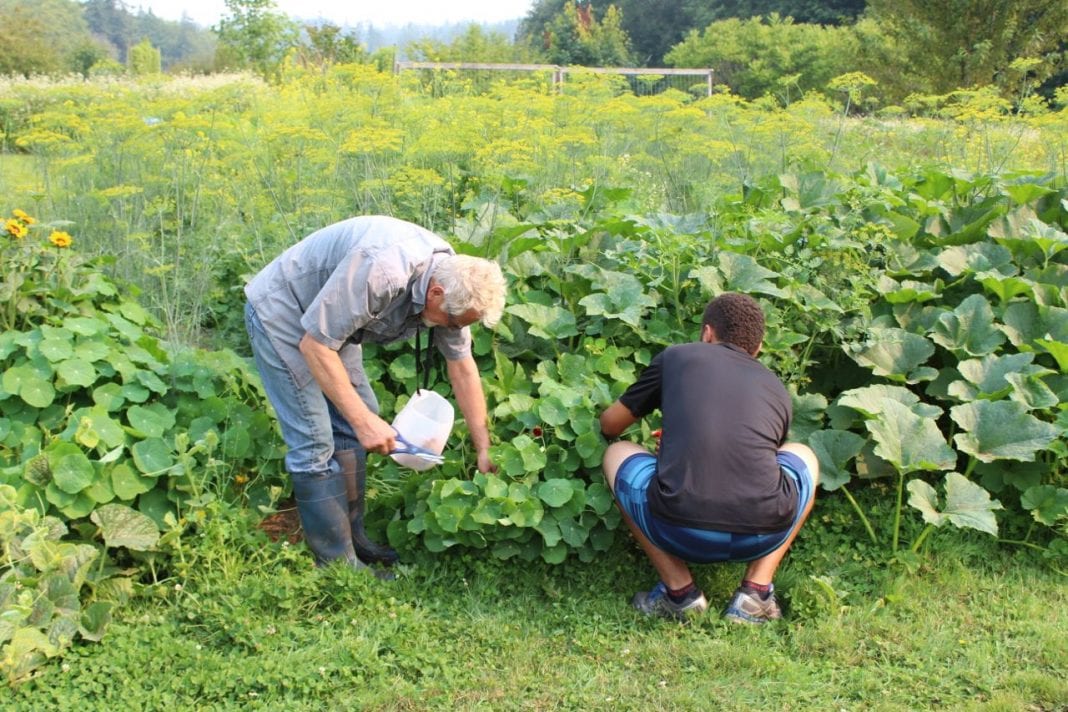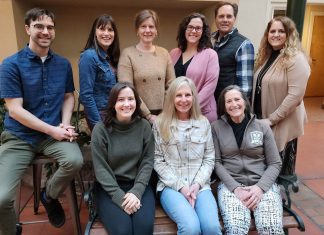Bellingham has made a name for itself as a beer town and all of the breweries are doing their best to be eco-conscious. But Atwood Ales is setting itself apart. This local brewery is situated on a family farm that closes the loop on their sustainability by using the wastewater and other organic material left over from brewing to grow more ingredients for the next batch.

Closing the Loop on Sustainability
Beer is approximately 95 percent water and the process of brewing creates a lot of wastewater. Atwood Ales wanted to find a way to reduce that waste. A chance meeting at the permit office in Whatcom County plotted the course for their wastewater plan. Josh Smith, Co-owner and Head Brewer, originally thought he would need a commercial septic system with a lot of costly engineering. But on the day he went to secure the necessary permits, he struck up a conversation with a health department worker that also happened to be a home brewer. He suggested doing a farm plan instead. That idea turned out to be easier, more cost-effective and a better solution for Atwood Ales. Josh is not only happy that he met that particular person on the day he was in the permit office, but he also feels grateful that a government official pointed him in a more sustainable direction.
Once this plan was in place, the Smith Family worked to get the operation up and running on their farm. Because of the location, Atwood Ales is able to collect all of the wastewater from the brewing process and treat it onsite to be used on the farm to water crops. The water that is used for cooling during fermentation and cleaning bottles is collected in 1,200 gallon tanks, then tested and treated for use. The farm grows its own hops, fruit trees and berries for different varieties of beer.
Atwood Ales Competes as a Finalist at the Good Food Awards
Atwood Ales is relatively new, brewing its first batch of beer in March of 2016. And now, less than two years later they have been named finalists for the Good Food Awards in the beer category. The Good Food Awards aim to recognize companies that make great tasting food and drinks and also practice environmental sustainability. The Smiths’ are “humbly proud” to be named a finalist in this category so early in the history of Atwood Ales.
In order to qualify as a finalist at the Good Food Awards, companies are vetted to find those driving towards “perfect” environmental and social sustainability, and the products are tasted and judged by a panel. Atwood Ales passed the vetting process by documenting their environmentally responsible business model, locally grown ingredients and participation with Sustainable Connections.
These awards in particular are special for Atwood Ales because they align with their business practices and recognize businesses that they respect. The “Rhuty” Sour Ale with Rhubarb was named a 2018 Good Food Award Finalist in the beer category.
Cutting Out Waste
The Smiths’ say that their work at the farm brewery is hard work – challenging, satisfying and fun. They enjoy the process and feel good about the work Atwood Ales is doing to brew great tasting beer with as little waste as possible. From using the wastewater for watering crops to feeding animals with spent grain, Atwood Ales has created a process that eliminates most of the waste associated with brewing.

Another way that Atwood Ales is making an environmental impact is by reusing bottles, states Monica Smith, Co-owner and Director of Sales, Marketing and Distribution. They have opted to use a particular bottle type that can be used almost indefinitely because it is so durable. A large percentage of their customers return the bottles directly to the company to be washed and reused.
Now that you know how Atwood Ales has cut a large part of the waste out of its brewing process, you need to know how to get your hands on it. They have bottles available at local restaurants and shops. They do not have a tasting room but encourage you to visit them at the Bellingham Farmers Market. They are there every Saturday providing free tastings and selling bottles. There you will meet Josh and Monica, Co-owners of this farm brewery, who enjoy connecting with customers face to face.
Sponsored


